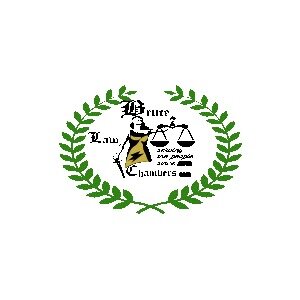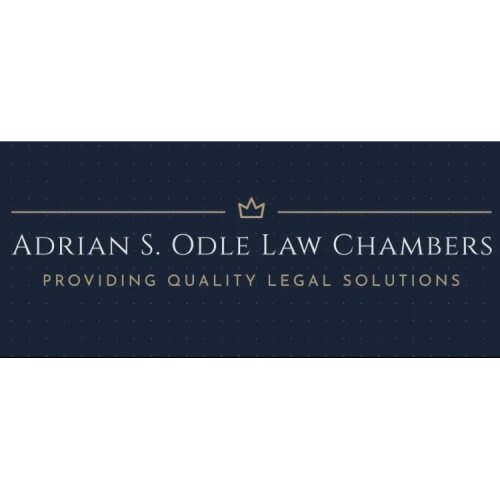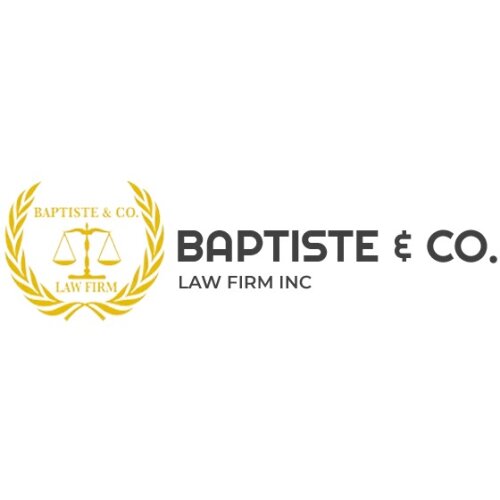Best Water Law Lawyers in Kingstown
Share your needs with us, get contacted by law firms.
Free. Takes 2 min.
List of the best lawyers in Kingstown, Saint Vincent and the Grenadines
About Water Law in Kingstown, Saint Vincent and the Grenadines
Water Law in Kingstown, Saint Vincent and the Grenadines governs the use, management, and protection of water resources, including rivers, streams, groundwater, and coastal waters. As an island nation, Saint Vincent and the Grenadines faces unique challenges regarding the sustainable use of water for domestic, agricultural, and commercial purposes. Water Law addresses not only access and rights to water, but also pollution control, water conservation, infrastructure development, and dispute resolution among users. Local statutes, regulations, and policies work together to safeguard this essential resource for present and future generations.
Why You May Need a Lawyer
Individuals and businesses in Kingstown may require legal assistance related to Water Law for many reasons. Common situations include:
- Disputes between neighbors or landowners over water access or boundaries
- Applying for water extraction, abstraction, or usage rights
- Allegations of water pollution or environmental harm
- Restrictions or loss of access to traditional water sources
- Land development projects near water bodies or wetlands
- Regulatory compliance for businesses using significant amounts of water
- Contamination or sanitation concerns affecting property or health
- Enforcement of conservation regulations and permits
Local Laws Overview
The legal framework for Water Law in Saint Vincent and the Grenadines is shaped by local acts, statutory rules, and environmental policies. Key aspects include:
- Ownership and Control: Water resources are generally under the control of the Government. This means personal or communal rights to water are subject to national policies and permits.
- Permits and Licensing: The use, abstraction, or diversion of water for purposes beyond personal domestic use usually requires permits from relevant local authorities. Unauthorized use can lead to penalties.
- Pollution Prevention: The laws set obligations for individuals and businesses to prevent pollution and contamination of water sources. Reporting requirements and clean-up mandates are enforced in case of spills or unauthorized discharges.
- Development Restrictions: Construction and land development near rivers, lakes, and other water bodies may be regulated to prevent negative environmental impacts.
- Dispute Resolution: The courts, as well as certain government departments, provide mechanisms to resolve disputes concerning water rights and usage.
- Water Conservation: Public education, restrictions on use during droughts, and initiatives to promote efficient water use are enacted to safeguard water supplies.
Frequently Asked Questions
What laws regulate water use in Saint Vincent and the Grenadines?
Water use is primarily regulated by national statutes such as the Water and Sewerage Act, along with environmental legislation and specific regulations issued by local authorities.
Who owns the water resources in Kingstown?
Water resources are owned by the state and managed on behalf of the public. Individual property rights to water are limited and usually require permits for significant usage.
Can I use water from a river or stream crossing my property?
While landowners may have limited rights to use water for personal domestic needs, larger scale use or diversion of water generally requires government approval.
Do I need a permit to construct a well or borehole?
Yes. Construction of wells and the abstraction of groundwater require authorization from the relevant government authority to ensure sustainable water management.
What should I do if I suspect water pollution in my area?
You should report suspected pollution to the Environmental Health Department or the Central Water and Sewerage Authority, who have powers to investigate and take enforcement actions.
What are the penalties for unauthorized water use?
Unauthorized abstraction or pollution of water can attract fines, orders to cease activities, or requirements to pay for remediation, depending on the nature and severity of the violation.
Can water-related conflicts with neighbors be resolved legally?
Yes. Disputes regarding water rights, boundaries, or pollution can be addressed through negotiation, mediation, or adjudication in court if necessary.
Are there restrictions on building near water bodies?
Development near water bodies is regulated to protect water quality and prevent erosion or habitat destruction. You may need special permits or may face restrictions based on environmental protection laws.
How can businesses ensure compliance with water regulations?
Businesses are advised to consult with legal professionals to review their operations, obtain necessary permits, implement pollution controls, and stay updated with regulatory changes.
How do droughts affect water rights and use?
During droughts, the government may impose temporary restrictions on water use or prioritize essential uses. Users must comply with official directives to avoid penalties.
Additional Resources
If you need more information or assistance with Water Law, consider contacting the following organizations:
- Central Water and Sewerage Authority (CWSA): The primary agency responsible for water supply, management, and regulation in Saint Vincent and the Grenadines.
- Environmental Health Department: Oversees water quality, pollution control, and public health concerns related to water.
- Ministry of Health, Wellness and the Environment: Plays a role in water policy, conservation, and legal enforcement.
- Local Law Firms: Many law offices in Kingstown have experience handling water-related legal matters and provide consultations.
- Community and Environmental Groups: Organizations focused on water conservation and environmental education can provide advocacy and guidance.
Next Steps
If you are facing a legal issue or have concerns related to Water Law in Kingstown, Saint Vincent and the Grenadines, take the following steps:
- Gather all relevant documentation, such as permits, correspondence, and photographs.
- Contact the appropriate agency for initial advice or to file a report if needed.
- Consult with a legal professional experienced in Water Law to discuss your rights, obligations, and possible solutions.
- Follow all regulatory instructions and maintain clear records of your actions and communications.
- Stay informed about local regulations and updates that may impact your water usage or legal matter.
Lawzana helps you find the best lawyers and law firms in Kingstown through a curated and pre-screened list of qualified legal professionals. Our platform offers rankings and detailed profiles of attorneys and law firms, allowing you to compare based on practice areas, including Water Law, experience, and client feedback.
Each profile includes a description of the firm's areas of practice, client reviews, team members and partners, year of establishment, spoken languages, office locations, contact information, social media presence, and any published articles or resources. Most firms on our platform speak English and are experienced in both local and international legal matters.
Get a quote from top-rated law firms in Kingstown, Saint Vincent and the Grenadines — quickly, securely, and without unnecessary hassle.
Disclaimer:
The information provided on this page is for general informational purposes only and does not constitute legal advice. While we strive to ensure the accuracy and relevance of the content, legal information may change over time, and interpretations of the law can vary. You should always consult with a qualified legal professional for advice specific to your situation.
We disclaim all liability for actions taken or not taken based on the content of this page. If you believe any information is incorrect or outdated, please contact us, and we will review and update it where appropriate.











